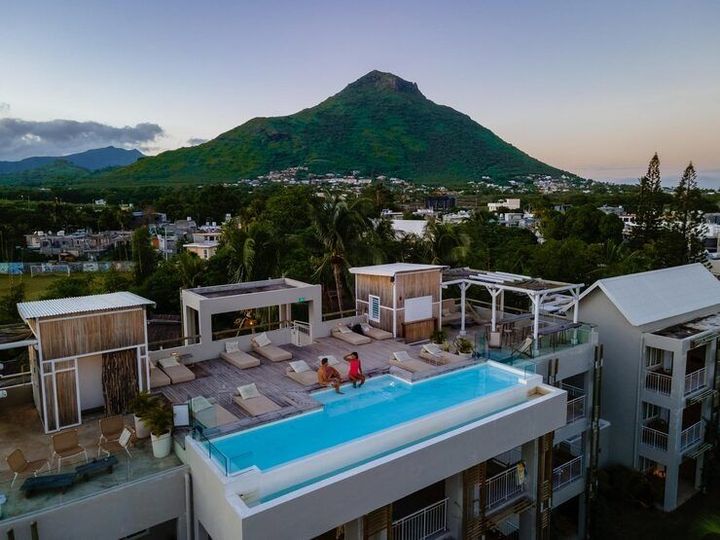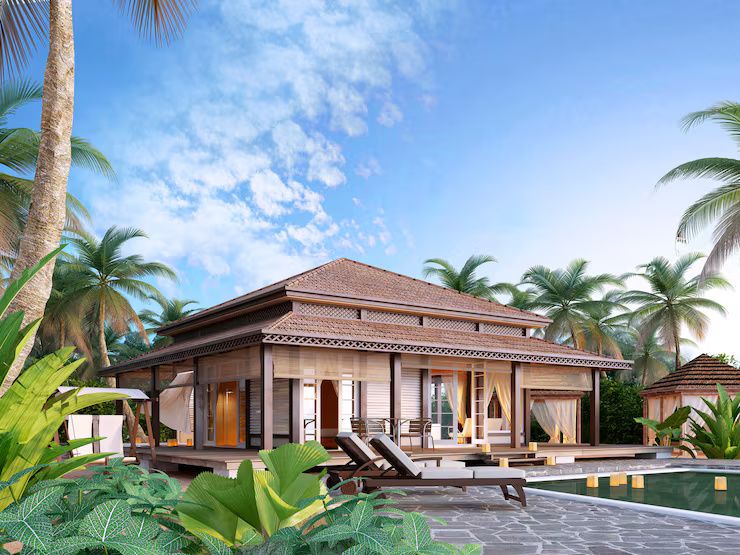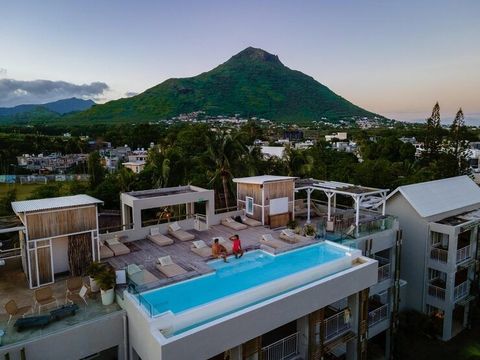
A Complete Advice to Invest in 3 BHK Luxury Homes in Thailand
Thailand has become a notable destination for residential property investment, especially among international buyers looking for spacious luxury homes. A 3 BHK (three-bedroom, hall, and kitchen) home refers to a residential layout designed for larger families, long-term living, or premium vacation stays. While the term “BHK” is commonly used in India and some Asian regions, it has gained recognition among foreign investors comparing residential options abroad.
The rise of Thailand’s property market has led to increased development of luxury 3 BHK units in major cities like Bangkok, Phuket, Pattaya, and Chiang Mai. These homes typically offer modern layouts, high-quality construction, and amenities such as fitness centers, pools, and security systems. Demand for such properties exists because of Thailand’s quality lifestyle, stable infrastructure, tourism-driven environment, and relatively accessible foreign ownership options through leaseholds or condominium ownership structures.

As the country continues to attract expatriates, retirees, and investors, 3 BHK luxury homes have become an appealing long-term living and investment option.
Importance: Why This Topic Matters Today
Investing in 3 BHK luxury homes in Thailand holds value for different types of buyers. The significance of this topic has grown due to lifestyle changes, increasing digital migration, and Thailand’s position as a stable Southeast Asian destination.
Who It Affects
-
International property investors seeking long-term assets
-
Families and retirees planning relocation or extended stays
-
Remote workers choosing Thailand due to connectivity and cost-of-living advantages
-
Tourism-linked investors considering residential properties for personal use
Key Benefits and Problems It Helps Address
-
Need for larger living spaces: Many buyers prefer 3 BHK layouts for comfort, privacy, and long-term suitability.
-
Lifestyle improvement: Thailand offers a relaxed environment, accessible healthcare, good connectivity, and cultural diversity.
-
Investment diversification: Property investment provides an alternative to traditional financial assets.
-
Better rental potential: In tourist regions, luxury homes often attract long-term and monthly renters.
-
Growing expatriate demand: Creates stability in the rental and resale market.
How It Supports Long-Term Planning
-
Establishing a second home or retirement residence
-
Creating a stable asset in a developing property market
-
Leveraging long-term value appreciation in prime locations
Recent Updates: Trends and Market Developments (2023–2024)
Thailand’s real estate market has seen important shifts, influenced by tourism recovery, policy updates, and increasing foreign interest.
Real Estate Market Recovery (2023–2024)
-
Thailand’s property sector grew steadily as tourism bounced back in 2023.
-
By mid-2024, demand for premium homes increased in Bangkok, Phuket, and Koh Samui.
-
Developers launched more spacious units, aligning with global post-pandemic preferences for larger homes.
Rising Interest in Sustainable Homes
-
Many new projects now include eco-friendly designs, energy-efficient systems, and green certifications.
-
Buyers increasingly prefer communities with better ventilation, open layouts, and green spaces.
Digital Property Purchases
-
More buyers are using virtual tours, online booking tools, and digital legal services for cross-border transactions.
-
Remote property purchases grew during 2023–2024 due to improved digital verification systems.
Rental Market Growth
-
Regions like Phuket and Bangkok reported increased long-term rental demand in 2024.
-
Investors purchasing 3 BHK homes benefit from families and working professionals seeking larger units.
Table: Price Trends for 3 BHK Luxury Homes (Approx.)
| Location | Typical Price Range | Market Notes |
|---|---|---|
| Bangkok | Medium to High | Strong long-term demand |
| Phuket | High | Tourism-driven luxury market |
| Pattaya | Medium | Growing expatriate community |
| Chiang Mai | Medium | Popular for retirees |
Laws or Policies Affecting 3 BHK Home Investments in Thailand
Thailand has specific property ownership regulations that influence how foreign buyers can invest. Understanding these helps buyers plan safely and responsibly.
Foreign Ownership Rules
-
Foreigners can legally own condominium units, provided foreign ownership does not exceed 49% of the building’s total area.
-
For houses or villas, foreigners cannot own land, but they can:
-
Own the building built on leased land
-
Enter long-term lease agreements (typically up to 30 years, renewable)
-
Use structures such as usufruct or superficies agreements
-
Land Lease Regulations
-
Long-term land lease agreements allow foreigners to use land for residential purposes.
-
Leases must be registered with appropriate authorities for legal protection.
Company Ownership Rules
-
Setting up a Thai company for owning residential property is subject to strict guidelines and must comply with local regulations.
Visa and Residency Options
Foreign investors may explore:
-
Long-Term Resident (LTR) Visa for eligible professionals or investors
-
Retirement visas for individuals meeting age and income criteria
Compliance Requirements
-
All property transactions must follow due diligence processes.
-
Payments should be documented carefully, especially for overseas transfers.
-
Condominium purchases require proof of foreign currency remittance.
Tools and Resources to Assist Buyers
Various tools and online platforms can help potential investors understand market conditions, legal requirements, and financial planning.
Property Market Research Tools
-
Thailand Property
-
DDproperty
-
FazWaz
-
Hipflat
-
DotProperty
Legal and Documentation Resources
-
Government land office websites
-
Real estate legal firms offering contract review
-
Online guides for leasehold and freehold structures
Financial and Cost Calculators
-
Mortgage calculators for local financing (available to some foreign nationals)
-
Property tax and transfer fee calculators
-
Currency conversion tools for international payments
Virtual Property Tour Tools
-
3D home viewing platforms
-
Developer-provided virtual walkthroughs
-
Google Maps for neighborhood analysis
Table: Key Factors to Compare Before Buying
| Category | Details to Evaluate |
|---|---|
| Ownership Type | Freehold condo, leasehold villa, long-term lease |
| Location | Proximity to schools, hospitals, transport |
| Price | Market average vs. developer pricing |
| Amenities | Security, pool, gym, green spaces |
| Legal Verification | Title deed, ownership history |
| Maintenance Costs | Monthly fees, sinking fund |
FAQs
Can foreigners buy 3 BHK luxury homes in Thailand?
Foreigners can buy condominium units directly, but buying land is restricted. For villas or houses, foreigners often use long-term lease agreements.
Is buying a 3 BHK home in Thailand a safe investment?
The safety of the investment depends on proper documentation, legal due diligence, and choosing reputable developers. Thailand has clear policies for condominium ownership, making it a structured process.
Are rentals allowed for 3 BHK luxury homes?
Yes. Many owners lease out their properties, especially in high-demand locations. However, rental rules may vary depending on building policies and local regulations.
Do foreign buyers need a visa to buy property?
No visa is required to purchase a condominium. However, visas such as the Long-Term Resident visa may support long-term stays.
What is the typical size of a 3 BHK luxury home in Thailand?
Sizes vary by region but typically range from 100 to 200 sqm for apartments, and larger for villas.
Final Thoughts
Investing in a 3 BHK luxury home in Thailand offers a blend of comfort, lifestyle quality, and long-term value. With clear ownership regulations for condominiums, growing infrastructure, and increasing global interest, Thailand remains a favorable destination for residential investment. Buyers who understand the legal framework, evaluate locations carefully, and use reliable tools for market research are better positioned to make informed decisions. As the real estate market evolves, staying updated with new developments can help investors plan strategically and responsibly.










